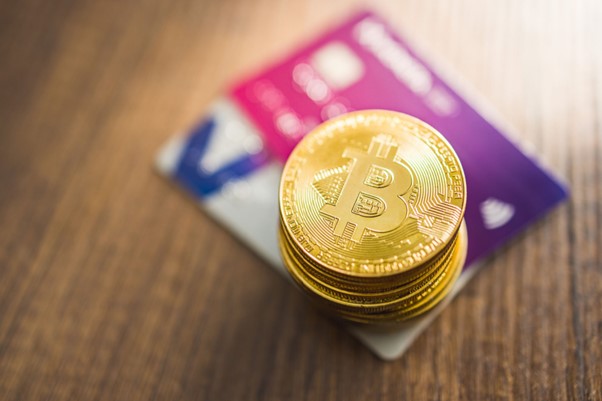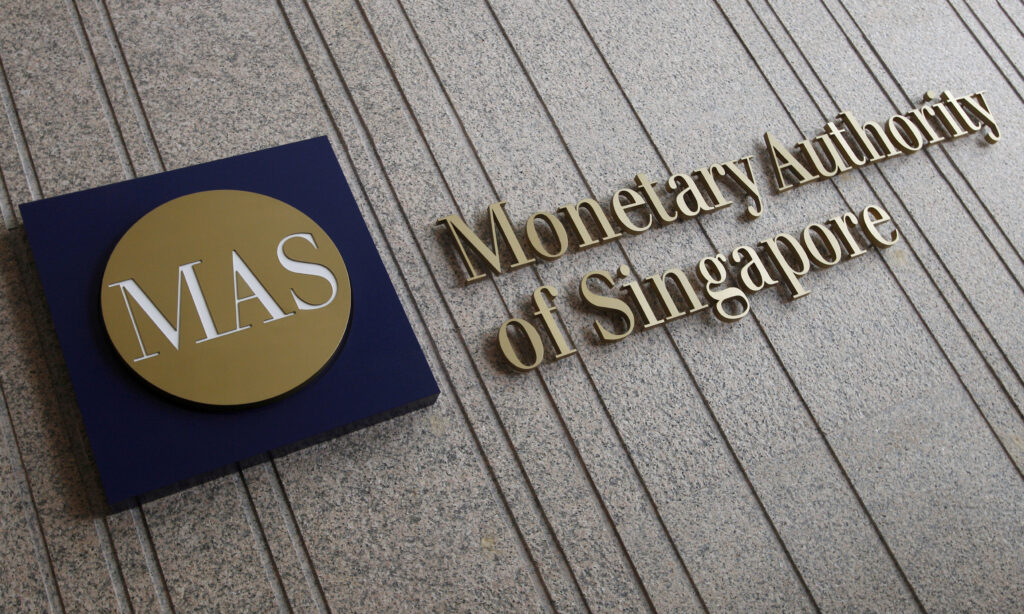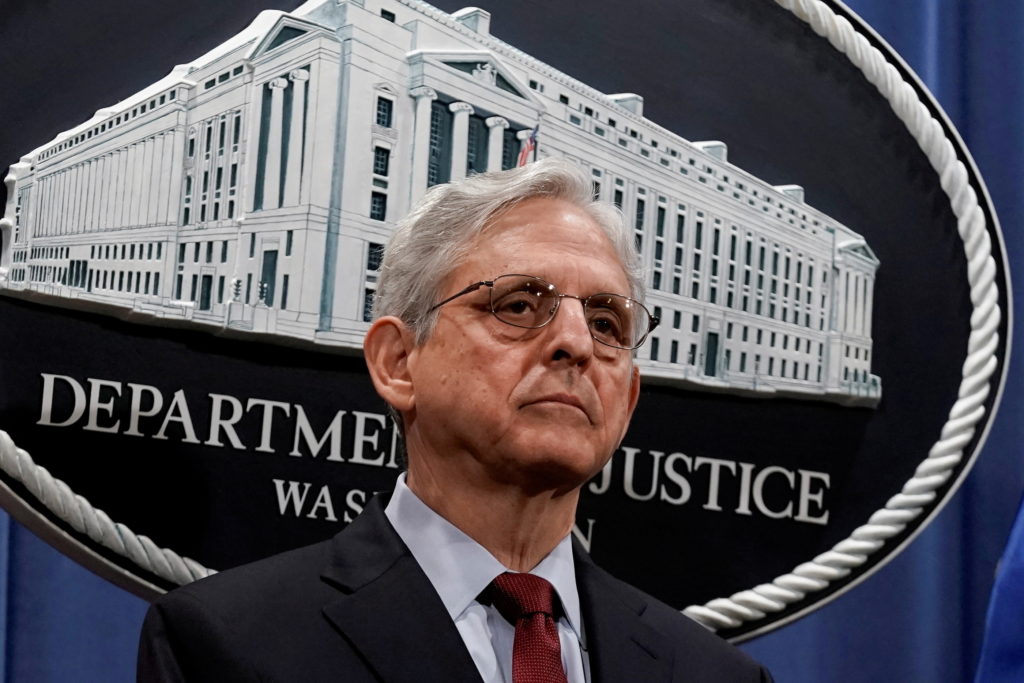The price of Bitcoin (BTC) experienced a swift recovery after rumors circulated that Binance CEO Changpeng Zhao, also known as CZ, had been arrested. Although the rumors remain unconfirmed, Bitcoin’s price took a nosedive before bouncing back and setting its sights on the $30,000 level.
Before the recovery, Bitcoin’s price plummeted to as low as $24,400, as panic spread among traders and investors. However, the cryptocurrency managed to regain lost ground and is now approaching the psychologically significant $30,000 mark.
Binance, the world’s largest cryptocurrency exchange by trading volume, has been under increased scrutiny from regulators across the globe. In recent months, the exchange faced regulatory pressure from countries such as the United States, the United Kingdom, and Japan. Despite these challenges, Binance has taken steps to comply with regulations and collaborate with authorities.
Some analysts believe that the arrest rumors of Binance’s CEO are a part of an ongoing campaign to discredit the exchange and sow doubt in the minds of investors. If the rumors prove to be baseless, they argue, the market should continue its upward trajectory.
Amid the uncertainty, traders and investors are keeping a close eye on Bitcoin’s price movement. The $30,000 level is considered a key support and resistance zone, and a decisive break above it could signal further gains for the cryptocurrency. Conversely, if the price fails to break through the $30,000 mark, it could face another round of selling pressure.
The broader cryptocurrency market also appears to be on the mend after the initial panic. Many altcoins have followed Bitcoin’s lead in recouping their losses and are now trading in the green. As the market continues to react to the unconfirmed rumors, the next few days will be crucial in determining the short-term fate of Bitcoin and other cryptocurrencies.
In summary, the recent rumors surrounding Binance CEO Changpeng Zhao’s alleged arrest have led to fluctuations in the cryptocurrency market. Bitcoin’s price has since rebounded, with traders now eyeing the $30,000 level as the next milestone. As the situation unfolds, the market’s response will be telling of the short-term prospects for cryptocurrencies.
Elon Musk, CEO of Tesla and SpaceX, has reportedly requested the dismissal of a massive $258 billion lawsuit filed against him over his alleged manipulation of Dogecoin prices. Musk’s legal team has described the claim as “absurd” and an attempt to hold him responsible for the plaintiff’s poor investment decisions.
The lawsuit, filed by a disgruntled investor who lost money in the Dogecoin market, accuses Musk of using his influential social media presence to manipulate the price of the cryptocurrency for his benefit. The plaintiff claims that Musk’s tweets and public statements led to significant fluctuations in the value of Dogecoin, ultimately resulting in financial losses.
Musk’s attorneys argue that the lawsuit is baseless and should be dismissed, asserting that the plaintiff is attempting to hold Musk liable for a decision that was ultimately their own responsibility. They emphasize that Musk’s tweets and public comments on Dogecoin were simply expressions of his personal opinions and not an intentional effort to manipulate the market.
The legal team further highlights the speculative nature of cryptocurrencies, emphasizing that investors should be aware of the risks involved when entering the market. They maintain that Musk’s influence on the cryptocurrency’s value is not a valid basis for a lawsuit, as the plaintiff knowingly assumed the risks associated with investing in a highly volatile asset like Dogecoin.
This lawsuit is not the first time Musk’s actions have come under scrutiny for their potential impact on the cryptocurrency market. The Tesla CEO has been known to cause significant price fluctuations with his tweets and public statements, often drawing both praise and criticism from the crypto community. However, it remains to be seen whether a legal precedent can be established that holds individuals like Musk accountable for their perceived influence on the market.
As the case progresses, it will be interesting to observe how the courts handle the unique challenges presented by the rapidly evolving world of cryptocurrencies and the influence of prominent figures like Elon Musk. With the dismissal request now filed, the future of this high-stakes lawsuit is in the hands of the legal system.
Bermuda’s Premier David Burt has expressed his support for the growth of cryptocurrency companies in the island nation, according to a recent report. Burt highlighted Bermuda’s forward-thinking approach to the burgeoning cryptocurrency sector and emphasized that the country remains open to crypto-related businesses.
Bermuda, a British Overseas Territory, has been actively pursuing opportunities in the cryptocurrency and blockchain industries.
The government has introduced various regulatory measures aimed at creating a safe and compliant environment for both local and international digital asset firms. These measures have made Bermuda an attractive destination for crypto startups and established businesses alike.
In an effort to further establish Bermuda as a global leader in the cryptocurrency space, the government has implemented a comprehensive legislative framework for Initial Coin Offerings (ICOs).
This legal structure ensures that companies launching ICOs in Bermuda adhere to strict regulatory guidelines, including investor protection and anti-money laundering measures.
Burt’s statement comes at a time when the cryptocurrency industry continues to mature, with more countries recognizing the potential benefits and opportunities that digital assets and blockchain technology can offer. By fostering a supportive environment for crypto companies, Bermuda aims to position itself as a leader in this rapidly evolving sector.
The Premier’s commitment to the cryptocurrency industry has been well-received by the business community, with several high-profile crypto companies, such as Binance and Circle, having established operations in Bermuda. These companies have praised the island’s robust regulatory framework and proactive approach to the emerging technology.
Bermuda’s ongoing efforts to develop a thriving cryptocurrency ecosystem underscore the growing interest and potential of digital assets on a global scale. As more nations begin to acknowledge the importance of cryptocurrency and blockchain technology, the industry will likely continue to see significant growth and innovation.
The United States government has announced plans to auction off 41,000 Bitcoin (BTC), worth approximately $1.8 billion, which were confiscated during the Silk Road investigation. Silk Road, an infamous online black market, operated as a platform for illegal activities, including drug trafficking and money laundering, between 2011 and 2013.
The U.S. Marshals Service (USMS), responsible for managing and disposing of assets seized by the government, has outlined the auction details. Interested parties must complete registration by April 30, 2023, and provide a refundable deposit of $200,000. The auction will take place on May 5, 2023, with the winning bidders being notified by May 10, 2023.
The seized BTC will be split into several lots, ranging from 100 to 5,000 BTC, allowing bidders to participate at various investment levels. Previous auctions conducted by the USMS have attracted a diverse range of participants, including cryptocurrency investment firms, traditional financial institutions, and individual investors.
The Silk Road case has had significant implications for the cryptocurrency industry. In 2015, the U.S. government auctioned off 50,000 BTC, then worth around $19 million, which were also linked to the Silk Road. Notably, entrepreneur Tim Draper won 30,000 BTC in that auction, which would now be worth over $1 billion. Similarly, in 2014, the USMS auctioned off nearly 30,000 BTC confiscated from Silk Road founder Ross Ulbricht, who is currently serving a double life sentence without parole.
While cryptocurrency has evolved considerably since the days of Silk Road, the upcoming auction serves as a reminder of the digital asset’s complicated past. The proceeds from the auction will be directed towards the U.S. government’s Asset Forfeiture Fund, which supports law enforcement activities and victim restitution.
The crypto and tech segment is one of the most lucrative and best-paying sub-fields when it comes to public relations and marketing.
Salaries have continued to rise in recent years, particularly in cities like London, New York and Dubai, as agencies look to hire the best talent to meet clients’ needs in this relatively young and everchanging market.
However, a growing number of companies are looking to hire candidates who have completed a professional accreditation course, such as the California Institute of Advertising, Communications and Marketing’s (CIACM) Mass Marketing Qualification (MMQ).
This is the case for both PR and marketing roles at agencies, and also for in-house roles.
So, what’s all the buzz about? Well, the reason qualifications like the CIACM MMQ are so in-demand at the moment is because they provide a firm grounding in PR, marketing and other related areas, such as SEO and content writing.
This qualification is therefore a good way to boost your chances of landing a job in any segment of PR and marketing, but especially the ultra-competitive areas, like crypto and tech PR.
It’s equally valuable for college graduates and non-graduates, and as it’s an internationally recognized qualification, it’s growing in popularity across the globe.
Specifically, candidates can expect a 30% pay increase after completing the California Institute of Advertising, Communications and Marketing’s (CIACM) Mass Marketing Qualification (MMQ), according to a survey conducted in February.
When Can Candidates Enrol?
Candidates can enrol into the course on a rolling basis, and it takes anywhere from 2-12 weeks to complete, depending on your other work and/or academic commitments.
How Much Does It Cost?
It costs $279 to enrol in and complete the CIACM MMQ, but they frequently hold sales, reducing the price considerably.
Bit2Me is leading the charge in fusing traditional finance and cryptocurrency with their innovative technology. The Madrid-based company has made a powerful impression as Spain’s premier crypto exchange, and has even been given the stamp of approval as the first virtual currency service provider sanctioned by the Bank of Spain.
In response to growing demands, Bit2Me has just launched their latest offering – the Bit2Me debit card. This card empowers users to effortlessly switch between multiple cryptocurrencies such as B2M, BTC, ETH, ADA, XRP, SOL, DOT, and the top stablecoin, USDT, for all their purchasing needs.
Thanks to Bit2Me’s cutting-edge software and Mastercard’s extensive global network of 90 million, the Bit2Me card offers seamless transactions, contactless payments, and 24/7 ATM withdrawals. The card operates just like a standard debit card, but with the added benefits of fast wallet switching and top-notch security features like the ability to lock and unlock the card and set usage restrictions.
Bit2Me’s CEO and co-founder, Leif Ferreira, sheds light on the extensive development process required to integrate the debit card with the Mastercard network and offer a high cash-back rate. He states:
“Dozens of professionals have been involved in this project, and after two years of work, we have found the key to connect cryptocurrencies to the Mastercard payment network. To do this, we had to modify the transaction flow (which is part of the international card payment protocol) so that customers can use cryptocurrencies to pay instantly and transparently for businesses. Moreover, we have managed to add up to 9% cash back on purchases.”
The Bit2Me card aims to simplify the use of cryptocurrencies in everyday life, providing instant and secure online payments and ATM withdrawals without the hassle of manual exchange. Bit2Me’s COO and co-founder, Andrei Manuel, has high hopes for the card, stating:
“Our mission is to bring the use of cryptocurrencies closer to everyone. Bit2Me Card allows you to use your cryptocurrencies easily and quickly in your day-to-day life. You can use cryptocurrencies, such as Bitcoin, or stablecoins, such as USDT, at physical or online stores.”
The crypto market has seen stability in recent months, resulting in a boost in investor confidence and a $300 billion USD increase in total market capitalization since the start of 2023.
The Bit2Me card offers consumers on both sides of the iaisle a great spending solution and a dependable way to spend their digital assets, with its user-friendly service, Mastercard network connectivity, robust mobile support, and up to a whopping 9% cash-back.
Singapore’s Monetary Authority (MAS) has launched measures to regulate cryptocurrencies after Three Arrows Capital (3AC) went into administration, it was revealed on Wednesday.
The city-state’s central bank revealed a series of proposals aimed at regulating digital payment token service providers (DPTSP) along with stablecoin issuers via the Payment Services Act.
It aims to target digital payment token (DPT) services for top cryptocurrencies such as Bitcoin (BTC), Ethereum (ETH), and XRP in a bid to lower consumer exposure to risks and improve stablecoin-based transaction standards.
In a statement, the authority said it would target three key areas:
Consumer access, requiring DPT service providers to show relevant risk disclosures to allow retail consumers to “make informed decisions regarding cryptocurrency trading” while also banning use of credit facilities.
Business Conduct, where DPT service providers must properly segregate customer assets, mitigate potential conflicts of interest from their multiple roles, and “establish processes for complaints handling.”
Technology Risks, requiring DPT service providers to maintain “high availability and recoverability of their critical systems,” similarly to banking institutions.
Regarding stablecoins, MAS proposes in section 4.21 to restrict issuers of single-currency pegged stablecoins (SCSs) from lending and staking, as well as lending or trading additional cryptocurrencies.
SCS issuers must also hold a threshold of $1 million in base capital, or 50 percent of annual operating expenses, at all times, including liquid assets, the regulator added.
Starry Night Capital NFT Fund
The measures come after Teneo, a liquidation firm for Three Arrows Capital, acquired control of the firm’s non-fungible token (NFT) assets, moving them to a Gnosis Wallet, according to a filing from the company,
Three Arrows Capital fell into administration in July due to “extreme fluctuations” in the bearish cryptocurrency market crisis. Prior to the collapse, the firm had paid $21 million USD to build its Starry Night Capital NFT Fund amid the huge push for NFTs in 2021.
The Tel Aviv Stock Exchange (TASE) (TASE.TA) said on Monday it would reshape its ownership structure and also create a blockchain platform to allow more trading of crypto currencies in an effort to match international standards.
TASE, which went public in 2019, said it would create a new publicly traded holding company that will own 100% of the bourse, which will become a private firm. Subsidiaries of the exchange will be units of the new holding company.
It said its board had given the nod to the plan but approval from the regulator and TASE shareholders were still awaited.
Under its five-year plan, TASE said it would focus on organic growth and bring in foreign investors through the expansion of international products traded and cleared on the bourse, including a relaunch of derivatives futures, it said.
Just 8% of daily share trading comes from foreign investors.
The exchange said it would create a platform for digital assets using blockchain, or distributed ledger technology. This would allow the trading of digital assets while exporting proprietary technological services to smaller foreign exchanges.
As a result, the TASE said it expects a compounded annual growth rate from revenue of 10% to 12% through 2027.
“We will leverage our home court advantage in Israel to adopt and develop fintech and position TASE as a hub of services and products,” said TASE’s chief executive Ittai Ben Zeev.
Over the first half of 2022, the bourse earned operating profit of 47 million shekels ($13 million) versus 55 million in all of 2021.
The U.S. Justice Department on Wednesday sued the indicted founder of a cryptocurrency “mixer” to recover a $60 million civil penalty that was imposed on him in 2020 by U.S. financial regulators for alleged failures to maintain an effective anti-money laundering program.
The lawsuit was filed in Washington, D.C., federal court against Larry Harmon of Ohio who ran a cryptocurrency “mixer,” or “tumbler” called Helix, an anonymizing service that U.S. authorities said could send virtual currency in a way that concealed the source or owner.
The Financial Crimes Enforcement Network, a bureau of the U.S. Treasury Department, in October 2020 imposed a $60 million civil money payment on Harmon for alleged violations of the federal Bank Secrecy Act (BSA). FinCEN, as the bureau is known, alleged that Harmon was operating an unlicensed money transmitting business in connection with Helix.
Last year, Harmon pleaded guilty to a money laundering conspiracy charge in U.S. District Court for the District of Columbia. He has not been sentenced.
Charles Flood of Houston’s Flood & Flood, a lawyer for Harmon in the criminal case, did not immediately reply to a message seeking comment on Thursday.
In court filings in the criminal case, Flood said “Harmon never set out to break the law and if he had known in 2014 that operating a bitcoin tumbler was illegal, he never would have done it.”
A spokesman for the U.S. Attorney’s Office for the District of Columbia declined to comment. A representative from FinCEN did not immediately respond to a message seeking comment.
In a statement in 2020, FinCEN said its “investigation demonstrated that Mr. Harmon deliberately disregarded his obligations under the BSA and implemented practices that allowed Helix to circumvent the BSA’s requirements.”
FinCEN said Harmon failed to “collect and verify customer names, addresses, and other identifiers” on more than 1.2 million bitcoin transactions from June 2014 to December 2017 valued at the time at $300 million.
In the criminal case, Harmon agreed to a $311,000 restitution order, court records show. The authorities seized various bitcoin “wallets” from Harmon as part of the criminal investigation.
Harmon’s sentencing was deferred, pending cooperation with the U.S. that the government said last month “remains active and ongoing.”
A growing number of funds are betting on the long-term appeal of bitcoin and ether, a gritty gambit in the depths of a crypto winter.
Unfazed by a collapse in prices over the past 11 months, investment firms have unleashed a flurry of exchange-traded funds, anticipating that elite cryptocurrencies and their underlying technology will eventually prevail.
Of more than 180 total active crypto exchange traded products (ETPs) and trust products globally, half have launched since the bitcoin bear market started, Morgan Stanley said in a note published this month. The proliferation came even as the total value of assets in the market slumped 70% to $24 billion in that period as crypto prices tanked.
About 95% of those 180 funds are focused on the top two coins, bitcoin and ether, Morgan Stanley said.
“Naturally when the market is slower, prices are lower, people have lost money, the intensity of the appetite does diminish,” said Chen Arad, co-founder of crypto risk monitoring firm Solidus Labs. “But it’s not the case in the long run. As a whole, I don’t think anyone is giving up.”
The attraction of ETPs is that they provide exposure to digital assets on a regulated stock exchange, so retail and institutional investors don’t have to worry about securely storing their crypto and eluding hacks and heists.
In terms of money, cryptocurrency investment products have attracted about $453 million in net inflows this year with much of it going into bitcoin and investment vehicles that include the biggest cryptocurrencies, according to a report from digital asset manager Coinshares.
“There is more asset allocation towards baskets that combine the top five or 10 crypto assets by market cap. It’s a flight to quality compared to alternative assets in the crypto industry,” said Eliezer Ndinga, director of research at 21shares.
Other major cryptocurrencies include solana, cardano and ripple .
Most active crypto ETP products are registered outside the United States, though, with Switzerland, Canada, Australia and Brazil racing ahead with spot crypto offerings.
One reason is that U.S. regulators have turned down several applications for spot bitcoin funds, which mirror the cryptocurrency’s price movements tick-by-tick, citing multiple reasons including a lack of surveillance-sharing agreements with regulated markets relating to the spot funds’ underlying assets.
Investors in futures-based funds must often shoulder the additional cost of the futures rollover as contracts approach settlement day, to maintain their position.
Bitcoin has lost 17% in the past three months, while ProShares Bitcoin Strategy’s ETF , which tracks bitcoin futures, has shed about 21%. The world’s largest bitcoin fund, Grayscale Bitcoin Trust (GBTC.PK), is down 34% in the same time.
ProShares Bitcoin Strategy ETF, has seen assets under management (AUM) shrink to just over $600 million as of the end of September, according to Refinitiv Lipper data. At its debut a year ago it pulled in over $1 billion in a matter of days.
At Grayscale’s Bitcoin Trust, the AUM have tumbled to $12.2 billion from over $30 billion at the end of 2021, data from the firm showed.
Will Peck, head of digital assets at WisdomTree, whose spot bitcoin ETF was blocked by U.S. watchdogs last week, said he wasn’t surprised by the decision, but expressed hope that an agreement could be reached.
“I think we’ll ultimately get there. But we’ll be in a holding pattern for the foreseeable future.”













